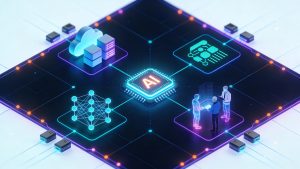AppOmni has released Heisenberg, an open-source solution designed to automatically scan pull requests (PRs) for newly added or risky dependencies prior to merging. The innovation aims to simplify dependency monitoring and enhance code security during software development.
By integrating Heisenberg into their workflows, development teams can generate live Software Bills of Materials (SBOMs) that provide ongoing visibility into package dependencies. This feature allows developers to identify and secure vulnerable components in real time rather than relying on static, outdated records.
Built to Strengthen SaaS and DevSecOps Environments
Yevhen Grinman, Lead Product Security Engineer at AppOmni, shared that Heisenberg was initially developed to secure internal code used in building AppOmni’s SaaS security platform. The tool focuses on analyzing only what changes in a PR instead of rescanning all files, reducing time and computational overhead.
Heisenberg operates through a command-line interface (CLI) or as part of a GitHub Action workflow, giving development and DevSecOps professionals flexibility to integrate security checks within their preferred environments. It supports popular programming ecosystems including JavaScript, Python, and Go.
Redefining How SBOMs Are Managed
The tool’s live SBOM capability marks a shift from traditional, static records that quickly become outdated. By leveraging real-time insights, Heisenberg functions like an instrumentation panel, giving developers instant visibility into dependency health across evolving DevOps pipelines.
Grinman noted that this level of transparency accelerates the identification and remediation of vulnerabilities, helping teams stay one step ahead of potential security issues as they code.
A Name with Symbolic Roots
Heisenberg takes its name from the alias of Walter White, the lead character from the TV series Breaking Bad. Much like its namesake’s precision and control, the tool ensures that every component in the software “recipe” is tracked and verified.
Addressing the Persistent DevSecOps Adoption Gap
Despite ongoing progress in DevSecOps, many developers still prioritize feature delivery over security validation. The result is a high incidence of known vulnerabilities that slip into production environments. This challenge has only grown with the widespread use of AI-assisted coding tools that introduce errors at scale.
AppOmni’s vision with Heisenberg is to make security practical, fast, and developer-friendly. By streamlining vulnerability detection within the PR process, it minimizes workflow friction and promotes proactive security practices—rather than reactive recovery measures.
Striking the Balance Between Speed and Security
Legacy security scanners often slow development and flood engineers with false positives. This leads developers to dismiss warnings, which can delay code approvals and ultimately undermine project timelines. Heisenberg is built to remedy that issue by delivering concise, context-aware insights when they matter most.
According to the AppOmni team, effective DevSecOps isn’t about overwhelming developers with complex results, but about providing tools that align with how they actually work. Heisenberg’s design reflects this philosophy, enabling modern development teams to confidently ship secure code without compromising speed.
Reinforcing Secure Coding Across Modern Workflows
The introduction of Heisenberg represents another milestone in the ongoing evolution of DevSecOps tooling. With its open-source model, AppOmni encourages the engineering community to adopt, adapt, and contribute improvements, fostering collaboration around preventive security practices.
As organizations scale cloud-native and SaaS applications, this lightweight yet powerful security layer gives them greater assurance that their software supply chain remains transparent, safe, and compliant from the moment code is written.
Read more such articles from our Newsletter here.



